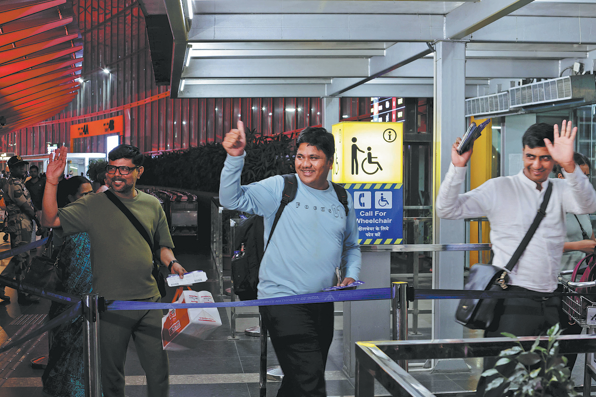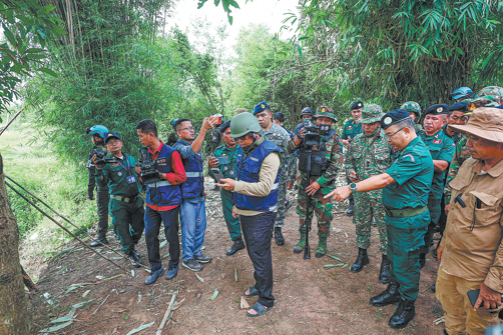What's false and what's true on China-related human rights matters


30. False: The Chinese government uses COVID-19 to "wipe out" Muslims.
True:
- Thanks to the joint efforts of the people of all ethnic groups in Xinjiang, COVID-19 has been effectively contained in the region. As of 29 June, a total of 76 confirmed cases had been reported in Xinjiang, including 73 cured cases and three deaths. With no new confirmed cases for over 130 days, Xinjiang has resumed full normalcy in economic and social activity early on and is back on track for economic and social development.
- On 9 December 2019, Shohrat Zakir, Chairman of the Government of Xinjiang Uyghur Autonomous Region, announced that all the trainees at the vocational education and training centers had completed their studies. There is no risk of cluster infections at these centers.
31. False: In media reports or social media posts about "missing persons", overseas Uyghurs tell stories about their "families" and "friends" in Xinjiang who have "lost contact" or "gone missing".
True:
- Xinjiang has never curtailed the freedom of travel of Uyghur people or people of any other ethnic groups. Nor is there any restriction on communication with relatives abroad.
- It has been verified by the relevant authorities that the so-called "missing persons" mentioned by overseas East Turkistan elements are either living a normal life or simply non-existent.
In an ABC News (Australia) report, Azmat Omar, a Chinese citizen living in Australia, claimed that he had lost contact with his family members in Xinjiang, including his father, stepmother, three brothers, two sisters and over 20 nephews. It later became clear that all his family members in China are living normal lives and enjoy full personal freedoms.
During a UN Human Rights Council session in February 2020, the World Uyghur Congress put up photos of the so-called "Uyghurs persecuted by the Chinese government" in the square with the Broken Chair in front of the Palace of Nations in Geneva. The photos have proved to be fake. Separatist groups got hold of the pictures and personal information of Uyghur officials and residents living normal lives in Xinjiang and misrepresented them to spread rumors.
32. False: China uses denial of passport renewal as a weapon to force overseas Uyghurs to return to China, where they face extrajudicial detention.
True:
- In China, a country governed by the rule of law, the citizens' personal freedom and right to leave and enter the country are protected by law. Chinese diplomatic missions abroad protect the lawful rights and interests of overseas Chinese, including ethnic minorities from Xinjiang, in accordance with laws and regulations including the Exit and Entry Administration Law of the People's Republic of China and the Passport Law of the People's Republic of China. Anyone who holds the Chinese nationality, recognizes oneself as a Chinese national, and has not violated Chinese laws and regulations can apply to the Chinese embassy or consulate in the place of residence for passport renewal or re-issuance.
- Xinjiang follows a fact- and law-based approach in managing exit and entry affairs and cracking down on crimes of violence and terrorism and activities of religious extremism. Most applications for passport renewal or re-issuance from Xinjiang natives have been received and approved by Chinese embassies or consulates. The very few who have their applications rejected are suspected of involvement in terrorist activities in violation of Chinese laws and regulations.
33. False: The research paper titled The Karakax List:
Dissecting the Anatomy of Beijing's Internment Drive in Xinjiang
True:
- The so-called research paper was produced by Adrian Zenz, a key figure in the so-called Xinjiang's Internment Camps Research Group set up and controlled by US intelligence agencies. The paper is based on a name list of "students sent to re-education who are family members of those who went abroad and have not returned." The list itself was cooked up by ETIM members from inside and outside China.
- The majority of the 311 people on the list live in Bostan Street in Moyu (Karakax) County. They live and work just like most other people do, and have never received vocational education and training. Only a very small number of those on the list have been sent to vocational education and training in accordance with the law for being influenced by religious extremism and committing minor crimes. Only 19 out of the 311 people have relatives abroad, but none of them have received the vocational education and training.

































